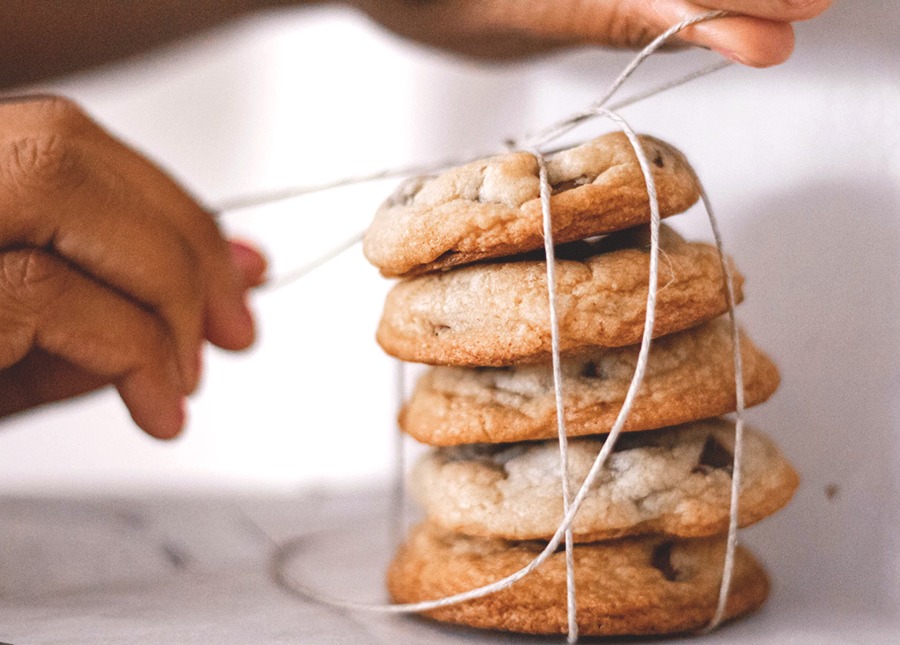5 Financial Baby Steps To Face Your Bank Account When You Feel Scared Or Overwhelmed

1. Read your statements
Once I started reading my transaction statements, I realized that a good chunk of my money was going to things I had totally forgotten. I was mindlessly spending $15.99 a month on a digital New York Times subscription that I had no idea I even had. My best guess is that I subscribed to it when I was taking a class that required reading a lot of news articles, and then forgot to cancel it. I was spending almost $200 a year on something I didn’t even know I had!
While this is an extreme example of your money getting away from you, small charges do tend to add up to large amounts when you aren’t conscious of exactly how you’re spending your money each month. You aren’t going to change your financial future by giving up your Spotify subscription, but this does give you a chance to get real with yourself about your purchases. Are you spending more than you want to on nights out because every Saturday night ends with drunk pizza that you only vaguely remember eating? That one is definitely a painful personal example. This can be an uncomfortable process, especially if you’re not happy with how you’ve been spending. But once you change the mindset of money just “getting away” from you, you’ll have a stronger foundation for changing your spending behavior.
2. Check your balances
This also falls in line with being honest with yourself. If you’re going to pay for something and just vaguely praying that the transaction will go through then you have a problem. This goes for the balance on your checking account as well as the balance on any credit cards or store cards you have. When I got my first credit card, I was so excited about feeling like I could buy anything that I basically did just that and wracked up a couple hundred dollars of debt in literally a few weeks. When I finally checked my balance, I was shocked and felt pretty embarrassed and guilty. If I had been checking my balances more frequently, I might have noticed that I had spent more than I was comfortable with and cut back sooner, saving myself the extra couple of months (and interest payments) it took me to pay off my initial spree.
3. Talk to a friend
You might feel like all of your friends know some secret you don’t. The secret to being able to afford fancy brunch every weekend or to confidently buying that extra round at the bar. But here’s the secret — some of your friends probably can’t afford those extra purchases any more than you can. I pretended to be sick multiple times instead of admitting to my friends that I couldn’t really afford to go on a night out. But once I started saying “could we do something less expensive?”, most of my friends admitted that our previous activities were stretching them thin, too. Being open about money can be really scary. Some people would rather disclose intimate details about their sex lives than talk about their financial position. But opening up to a trusted friend can be really beneficial. They can help hold you accountable to your goals or offer advice if they’ve been in your position. Even just casually discussing what bank you use can help normalize money in casual conversations.
4. Read a book (or listen to a podcast)
Money is a complicated topic to understand. There’s literally no denying this. But the more you know, the more you’ll feel in control of your financial decisions. And money knowledge isn’t something elusive that only uber rich people have access to. There are a ton of informative books that you can get right at your local library. Personally, I started with Refinery29’s Money Diaries. Other great choices are Broke Millennial by Erin Lowry and, of course, The Financial Diet’s own book! But most importantly, find a style of learning about money that works for you. If you keep finding excuses not to sit down and read, don’t keep buying financial books. Try a podcast like Journey to Launch from Jamila Souffrant that you can listen to on your way to work or while making dinner. Once you find a money method that resonates with you, you’ll be more empowered to make educated choices about your financial life.
5. Forgive yourself
Just because you’ve made some irresponsible decisions with money in the past doesn’t mean you’re permanently stuck. It might take more work and more careful planning to get back to a financial position that makes you happy but you are not a bad person because you made some mistakes. If you keep the bubble of shame and embarrassment around your money, then you’re not going to be able to change your habits. Owning up to your past self and deciding to act differently is a huge step that can’t be overestimated.
Abby is a recent college graduate who loves to sit down with a cup of coffee and a book while planning her next travel adventure. Follow her on Instagram @abby.hart.4 for pictures of her cat, Peanut.
Image via Unsplash
Like this story? Follow The Financial Diet on Facebook, Instagram, and Twitter for daily tips and inspiration, and sign up for our email newsletter here.

